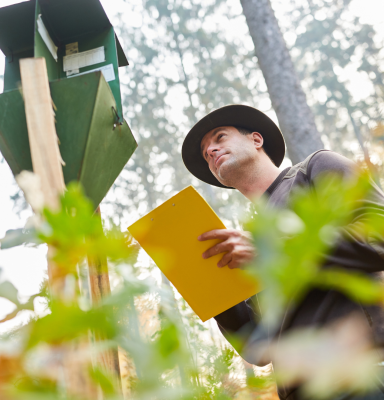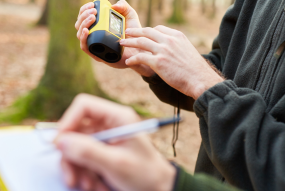
Forests are the best climate mitigator, but they need our help!
It is a misconception that the best way to protect a forest is to leave it alone – and with climate change gathering pace and the world’s population on the rise, responsible forest management is more important than ever. The world’s forest ecosystems were formed long before people came along and they have a proven ability to adapt, therefore the arguments in favour of a hands-off approach are not unreasonable. However, current climate change is altering the balance of the natural world so fast that some tree species and populations will struggle to survive. These changes are likely to accelerate this century making forest stewardship our duty, not a choice.
The year 2021 has seen a flurry of extreme events around the globe, and it is not just a feeling - extreme events are happening more often and becoming more intense. There are increases in the number of heat waves on the ocean and on land, increases in the intensity of rainfall and drought, and increases in the intensity of wildfires. Climate change will likely expand the range and prevalence of forest pests and pathogens. Pests and pathogens typically occur at low population or infection levels in forests, but they occasionally wreak havoc on trees. When trees are exposed to a drought or wildfire, they can become less resilient to pests and pathogens. And with climate change, forests could face increased outbreaks. This is for example already becoming more evident with recent increase of bark beetle cases around Europe.
To learn more about the main threats world's forests face today please click here.
Forests need to keep pace with this changes imposed by the climate change. To ensure they do, it is vital to conserve forest genetic resources, the inherent genetic material that exists within a species and forms the base for adaptation. Today there are only small areas of primary forests left in Europe, attesting to the fact that our numerous historical interactions with forests led to a change in their genetic makeup. Some example of this include:
→ Deforestation in the past, which has in some regions depleted forest genetic resources to the extent that they are less well equipped to adapt to climate change, or
→ Historic movement of forest reproductive materials (FRM) such as seeds, cones, cuttings and planting stock of certain tree species which have altered the world’s (and particularly Europe’s) forests. People assume that European forests have a high degree of naturality, but in many cases they have been significantly altered.
Active and responsible forest management helps preventing further genetic erosion.
Three pillars of responsible forest management

Environmentally appropriate forest management ensures that the production of timber, non-timber products, and ecosystem services maintains the forest’s biodiversity, productivity, and ecological processes.

Socially beneficial forest management helps both local people and society at large to enjoy long term benefits and also provides strong incentives to local people to sustain the forest resources and adhere to long-term management plans.

Economically viable forest management means that forest operations are structured and managed so as to be sufficiently profitable, without generating financial profit at the expense of the forest resource, the ecosystem, or affected communities.
Responsible forest management is the stewardship and use of forests and forest lands in a way, and at a rate, that maintains their biodiversity, productivity, regeneration capacity, vitality and their potential to fulfil, now and in the future, relevant ecological, economic and social functions, at local, national, and global levels, and that does not cause damage to other ecosystems.
